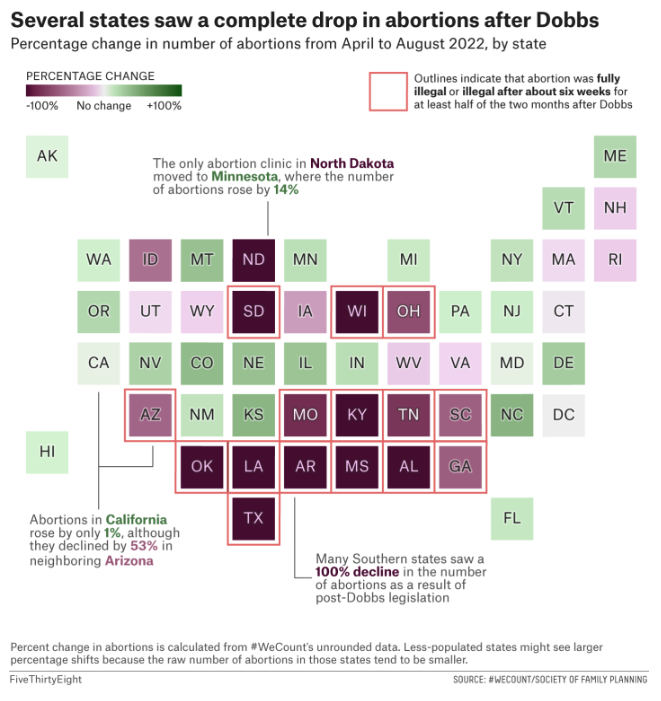
New data, exclusively shared with @FiveThirtyEight, indicates that at least 10,000 women were unable to get an abortion in July and August because of Dobbs. fivethirtyeight.com/features/overt… 

The data, collected by researchers at #WeCount, a project led by @SocietyFP, found that abortions did rise in many states in the two months after Dobbs - but that increase wasn't enough to make up for the dramatic decline in the South and Upper Midwest.
Overall, the data suggest that in July/August, over 20,000 women were unable to get an abortion in their home state because of post-Dobbs bans or restrictions. Some of those women appear to have traveled to states like IL and NC. But not everyone could make the trip.
These data are an extraordinary, close to real-time look at how the Dobbs decision is reshaping the country and people's lives. Thanks to @UshmaU @AlisonHNorris @SocietyFP for sharing the data with us pre-publication and helping us understand the findings.
A CAVEAT I should have added to my first tweet - this dataset only captures LEGAL abortions. Some women are almost certainly obtaining abortions without clinical support, so the data likely underestimates the number of abortions that happened in July/August.
• • •
Missing some Tweet in this thread? You can try to
force a refresh







